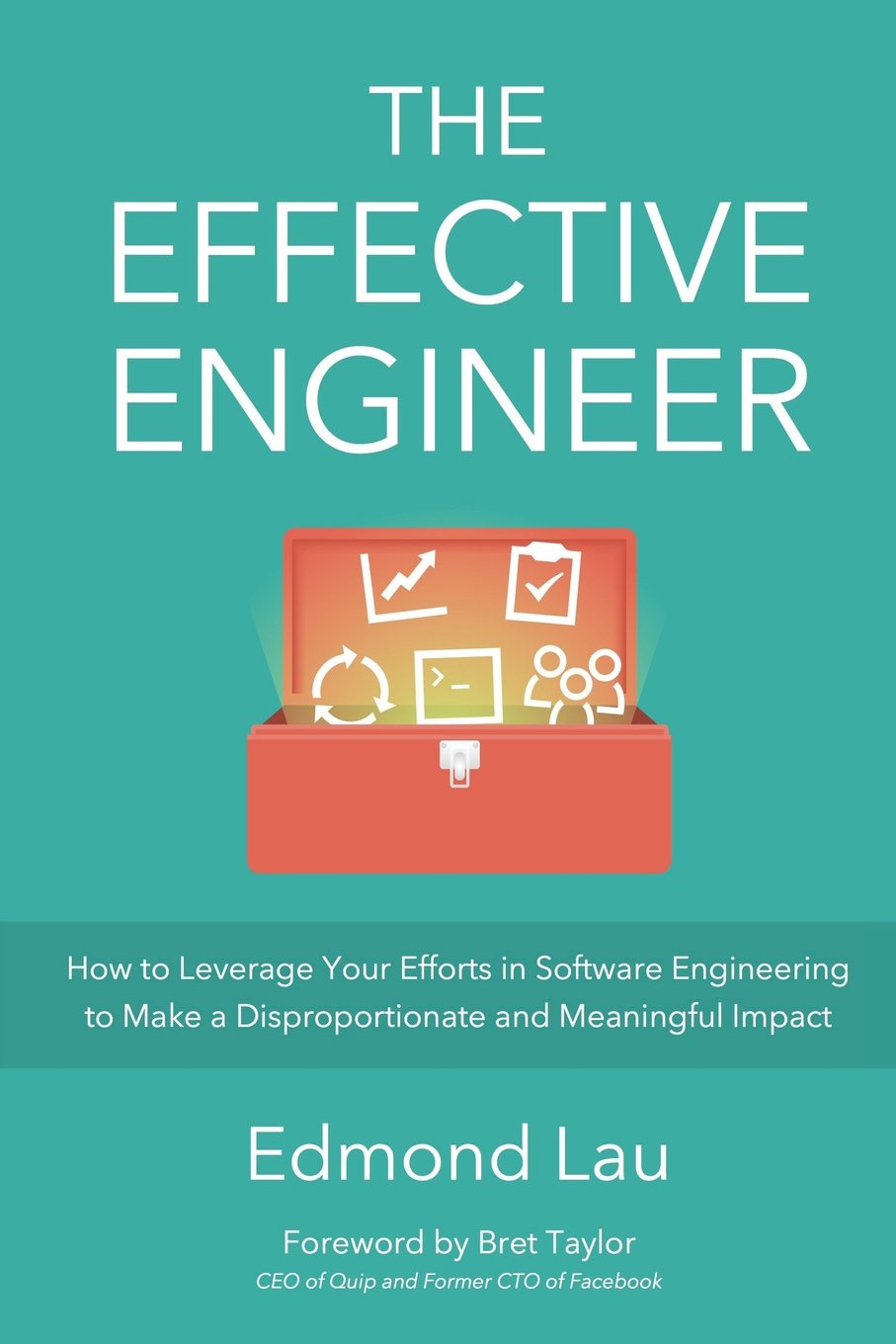"The Effective Engineer: How to Leverage Your Efforts In Software Engineering to Make a Disproportionate and Meaningful Impact" by Edmond Lau
What It's About
Edmond Lau's "The Effective Engineer" tackles the exact challenge most engineers face: working incredibly hard but struggling to articulate or maximize their impact. The book introduces the concept of "leverage" - the value produced per unit of time invested - and provides a systematic framework for identifying and pursuing high-leverage activities. Lau draws from his experience at top tech companies like Google, Facebook, and Quora to show how the most successful engineers don't just write more code; they focus on work that multiplies their impact across teams and organizations.
The book covers practical topics like how to prioritize tasks based on impact rather than urgency, how to measure engineering productivity in business terms, and how to build tools and systems that amplify your effectiveness. Most importantly, it teaches you to think like an owner rather than an employee, constantly asking "What's the highest-impact thing I could be working on right now?" rather than just completing assigned tasks.
Why I Recommend It
This book is essentially the technical companion to building your Impact Portfolio. Where my article focuses on documenting and communicating your value for promotions, Lau's book teaches you how to create that value in the first place. His framework for calculating leverage directly translates to the kind of quantifiable metrics that make promotion conversations straightforward rather than painful.
What sets this book apart is its focus on business impact over technical elegance. Lau repeatedly emphasizes that the "best" solution is often not the most technically sophisticated one, but the one that delivers the most value to users and the business. This mindset shift is crucial for engineers who want to move beyond individual contributor roles - it's precisely the thinking that separates staff engineers from senior engineers.
The book's emphasis on measurement and iteration also perfectly complements the weekly impact tracking I recommend. Lau provides specific techniques for quantifying engineering work that seems unquantifiable - from developer tool improvements to technical debt reduction - giving you the vocabulary and frameworks to translate technical achievements into business value. If you've ever struggled to explain why refactoring that legacy system matters to non-technical stakeholders, this book provides the blueprint.
For engineers serious about accelerating their careers through impact rather than tenure, this book is required reading. It's not about working harder; it's about working on the right things and being able to prove it.



